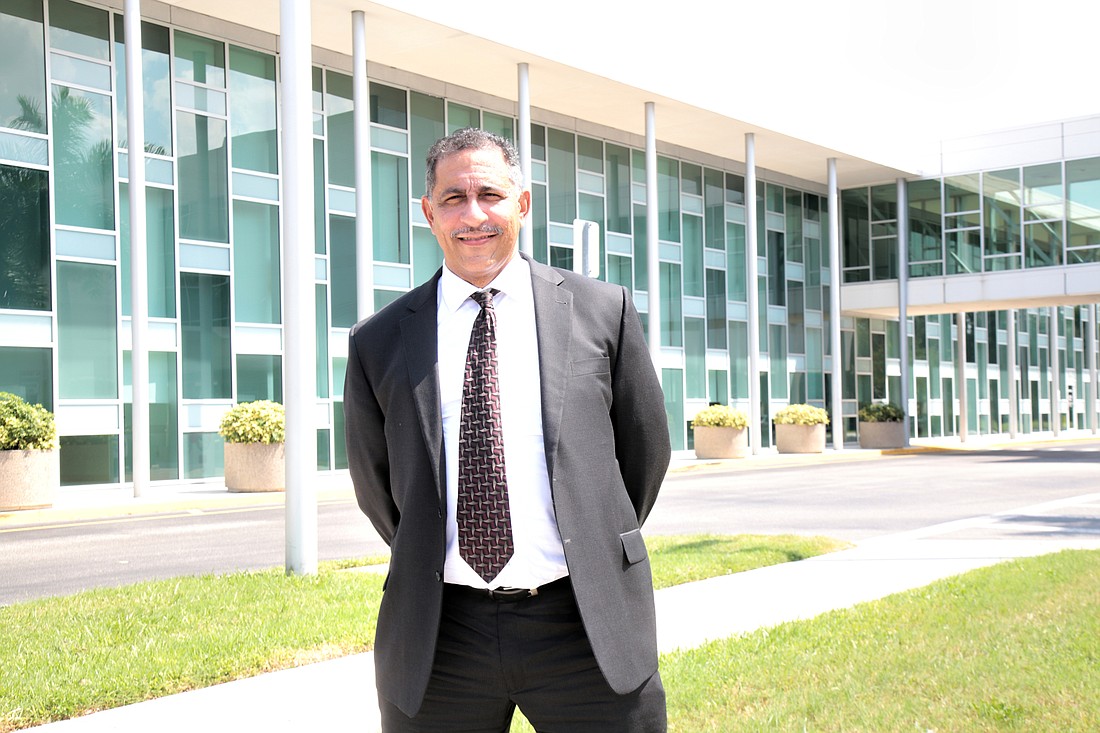- December 13, 2025
-
-
Loading

Loading

When Shelly Walton opened BackStreets Sports Bar in Cape Coral more than two decades ago, little was happening and there were only a few businesses in the primarily single-family residential community.
In the hopes of spurring long-sought economic redevelopment, she and several other leaders in the city are finally putting forth concerted efforts to revitalize Cape Coral’s image and outlook, particularly in its downtown area known as the South Cape. The work, in part, is an effort for the city to catch up to other Southwest Florida commercial hubs in nearby Estero, Bonita Springs and Fort Myers.
For one, directors of the city’s Economic Development and Community Development divisions hosted workshops and presentations to encourage developers and the public that Cape Coral needs more commercial, mixed-use and high-density residential growth to help it compete with other cities in Florida.
In addition to owning the sports bar, Walton, meanwhile, is also president of the South Cape Hospitality and Entertainment Association. The group promotes downtown businesses by hosting adult and family-friendly activities throughout the year like a bacon festival, pub crawls and a LGBT-pride event.
More revitalization comes from new 18-foot-wide brick paver sidewalks, roundabouts and landscaping along downtown’s SE 47th Terrace, where new restaurants, bars and retail shops have been opening the past few years. That project was recently completed and funded by the city — at a cost of $15 million — to promote the area and make it more pedestrian friendly.
The Cape Coral City Council followed that up this past August, by rezoning numerous neighborhoods into high-density, multifamily districts that allow for buildings as tall as 12 stories and up to 125 residential units per acre. The hope? Entice commercial real estate investors and builders looking to construct rental complexes or condominium developments.
Additionally, the city’s Community Redevelopment Agency is offering tax increment financing, deferred impact fees, stormwater credits and other assistance for those planning commercial renovations and new construction projects.
“South Cape is moving in a different direction from a suburban downtown to a pedestrian-friendly walkable business district,” says Ricardo Noguera, who manages the city’s Economic Development Office and hosted a presentation in mid-September to outline the many projects that have already happened or are coming soon downtown. “The whole intent of the workshop was to expose the (area) to developers and show them the opportunities to inquire and invest in South Cape.”
Many entrepreneurs have already taken the bait.
George Lukas, who owns an Italian restaurant in the city, unveiled plans to open a steakhouse and rooftop bar — Prime 239 and Skybar 26 — with a group of overseas investors in a new, four-story entertainment complex on Cape Coral Parkway. The project will include office space on the second and third floors, with the ground floor reserved for the eatery.
Another downtown mixed-use project recently announced is La Placita de Cape Coral, a collection of four 2- and 3-story buildings with upper floors designated for offices and the first floors open for retail, bars or restaurants.
Noguera says he has heard about more plans on the horizon for both downtown and other parts of the city, but none the developers wish to announce publicly yet.
Even though Cape Coral is ranked in the top 10 for population in Florida, with roughly 200,000 residents, Noguera says there is still plenty of room for more commercial growth: only about 50% of the city’s 120 square miles of land has been developed. (Cape Coral is part of the Cape Coral-Fort Myers MSA, which has about 680,000 people.)
“The city has 92% residential and 8% commercial,” he says. “I’m trying to change that, but it’s not easy.”
He has partnered with the city’s Community Development director, Vincent Cautero, to create an environment that is enticing to commercial developers, while also being appealing and welcoming to its residents. He would like to see more technology and medical firms open or expand their operations, like Pro Med Instruments, which already operates in the city.
“Over the next 20 years, Cape Coral has the opportunity to double its population,” Noguera says.
And Walton believes the community is already starting to feel the difference of the economic development push. More people are coming into her bar and other drinking establishments and eateries, and crowds are lining the city’s streets during events.
“Things just started happening really very recently,” she says. “I feel like a lot of people have moved into South Cape. The hospitality board has been bringing fun events into South Cape. People follow fun events, and businesses follow people.”